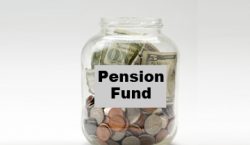


Regular physical activity at least 30 minutes most days of the week can lower your blood pressure
IF you have been diagnosed with high blood pressure, you might be worried about taking medication to bring your numbers down. Lifestyle plays an important role in treating your high blood pressure. If you successfully control your blood pressure with a healthy lifestyle, you might avoid, delay or reduce the need for medication.
Lose extra pounds and watch your waistline
Blood pressure often increases as weight increases. Being overweight also can cause disrupted breathing while you sleep, which further raises your blood pressure.
Exercise regularly
Regular physical activity — at least 30 minutes most days of the week can lower your blood pressure by 4 to 9 millimeters of mercury. It is important to be consistent because if you stop exercising, your blood pressure can rise again.
Eat a healthy diet
Eating a diet that is rich in whole grains, fruits, vegetables and low-fat dairy products and skimps on saturated fat and cholesterol can lower your blood pressure by up to 14 mm Hg.
Reduce sodium in your diet
Even a small reduction in the sodium in your diet can reduce blood pressure by 2 to 8 mm Hg.
Limit the amount of alcohol you drink
Alcohol can be both good and bad for your health. In small amounts, it can potentially lower your blood pressure by 2 to 4 mm Hg.
Quit smoking
Each cigarette you smoke increases your blood pressure for many minutes after you finish. Quitting smoking helps your blood pressure return to normal.
Cut back on caffeine
The role caffeine plays in blood pressure is still debated. Caffeine can raise blood pressure by as much as 10 mm Hg in people who rarely consume it, but there is little to no strong effect on blood pressure in habitual coffee drinkers.
Reduce your stress
Chronic stress is an important contributor to high blood pressure. Occasional stress also can contribute to high blood pressure if you react to stress by eating unhealthy food, drinking alcohol or smoking.
Monitor your blood pressure at home and see your doctor regularly
Home monitoring can help you keep tabs on your blood pressure, make certain your lifestyle changes are working, and alert you and your doctor to potential health complications.
Get support
Supportive family and friends can help improve your health. They may encourage you to take care of yourself, drive you to the doctor’s office or embark on an exercise program with you to keep your blood pressure low. – mayoclinic.org
Sorry. No data so far.

